Tuesday Feb 17, 2026
Tuesday Feb 17, 2026
Friday, 22 April 2022 00:28 - - {{hitsCtrl.values.hits}}
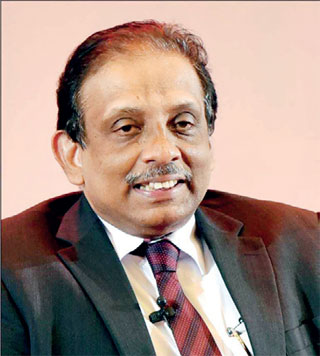
Former Secretary to the Treasury S.R. Attygalle
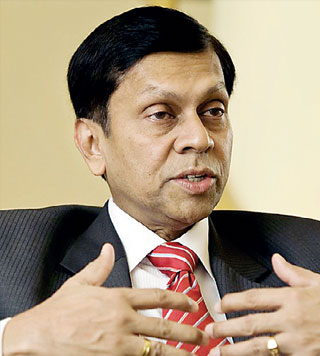
Former Central Bank Governor Ajith Nivard Cabraal
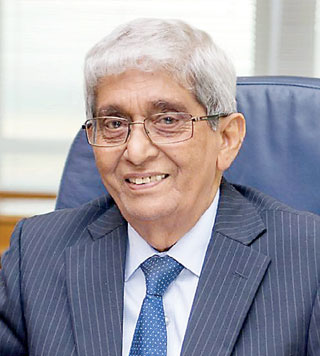
Former Central Bank Governor W.D. Lakshman
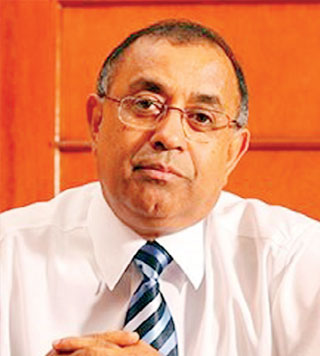
Former President’s Secretary P.B. Jayasundara
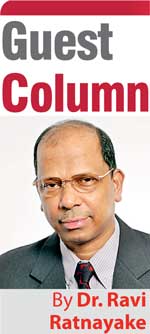 Unforgivable economic policy crimes
Unforgivable economic policy crimes
Sri Lankan people, in particular the poor, have become the innocent victims of the current economic, social and political crises, purposely “made” by politicians, policymakers, and their advisors. The tri-crises culminated with the onset of widespread social unrest that has arisen from the loss of lives in queues, poverty, hunger, shortage of food and fuel, and power cuts. Anger, frustration, and enormous suffering of the people were due to both political misconducts and wrong economic policy prescriptions. Undoubtedly, the political leadership should take the ultimate responsibility for these disasters. Politicians are paying for their mistakes, evidenced by the social turmoil and strong voices and actions against them.
However, not much attention has been paid to the wrongdoing of advisors in creating this dangerous situation. While political leadership should be wise enough to choose between good and bad advice, the top-level policymakers, including the two former governors of the Central Bank, and the former Secretary to the President, have failed to do their official duties. They misled both political leadership and the people of Sri Lanka. All these senior public officials are also responsible for their inability to provide the right policies at the right time and for dragging the country into a living hell, which is unprecedented in the modern history of Sri Lanka.
This crisis is not entirely a result of COVID-19 but also due to policy failure committed by a few top policymakers and advisors who should be accountable for their crimes against the nation. No need to go further to prove this claim, the Government itself admits the crime.
Ali Sabry, the current Minister of Finance, said recently: “Sri Lanka was blocked from going to the International Monetary Fund for assistance by the then Presidential Secretary, Central Bank Governor, and Treasury Secretary. The former Secretary to the Treasury Attygalle, former governor Ajith Nivard Cabraal, and former President’s Secretary P.B. Jayasundara did not want to go to the IMF when almost all the cabinet ministers were in favour of going. They were talking about a homegrown solution instead. Ex-Central Bank Governor W.D. Lakshman, a former economics professor printed unprecedented volumes of money to run down reserves over two years and trigger over 18 percent inflation over two years under so-called Modern Monetary Theory, an extreme form of Keynesian stimulus” (Hiru TV interview).
Crime No. 1: Using the country as a testing ground for mistaken and devastating economic policy
The biggest mistake of the present Government was to believe in and accept an impractical, irrelevant, and inoperable doctrine advocated by the former governor Professor W.D. Lakshman. With due respect to his academic credentials, as also pointed out by several analysts, the former governor followed an invalid and outdated ideology in the economic and financial management in the country without taking into account new international developments and ground realities. He believed in a theory that says that undertaking expenditure programs through money printing by the Government is the solution to the economic issues facing Sri Lanka. He implemented this theory vigorously, using the country as a testing ground.
Added to this, Professor Lakshman was also an ardent follower of economic thinking that existed until the end of the 1970s. He is a strong supporter of inward-orientation, controls, and extreme import substitution, a kind of economic thinking that existed until the end of the 1970s around the world. Countries, including Sri Lanka, rejected these policies as they failed to deliver expected economic results. Many analysts claim that the former Secretaries to the President and the Treasury fully supported the policies promoted by the former Governor. Under the Governorship of Ajith Nivard Cabraal, the Government continued to follow the former Governor’s mistaken and inappropriate ideology.
Crime No. 2: Unwarranted tax reduction
The sweeping tax cut just after the presidential election in 2019 was the first policy mistake of the current Government. That was the starting point of the economy’s collapse. This includes reducing the value-added tax from 15% to 8% and abolishing several other taxes. This unwise decision ignored all macroeconomic fundamentals, probably to gain political support. This resulted in the downgrading of credit ratings and investors’ loss of confidence in the Sri Lankan economy.
Crime No. 3: Ban on the use of chemical fertiliser: Failed attempt to transform the country into a green economy overnight
While the intention to promote environmental sustainability is much appreciated, the sudden stopping of the use of chemical fertiliser was a shocking mistake in terms of both timing and the rationale. Being a developing country, Sri Lanka should balance at least five factors, when taking such a critical decision. The first is food security. Rice is the staple food of the people, and the country was nearly self-sufficient until recently. However, due to a shortage of local paddy production resulting from the ban, the Government started importing rice at the cost of much-needed foreign exchange reserves. As a result, the country lost food security in rice and other agricultural products.
The second is the farmers’ incomes, which are directly related to poverty. Sri Lanka is primarily an agricultural economy with a considerable contribution to GDP and employment, and many live on it. Due to the ban, the paddy harvest of the Maha season has dropped at least 40%, directly affecting the incomes of the farmers and their living standards.
The third is the possible health impact due to the use of chemical fertiliser in producing food crops and drinking water. The fourth is the production of agriculture, which is a major source of foreign exchange earnings. Not only three major export crops (tea, rubber, and coconut) but also other agricultural products were affected severely by the fertiliser ban. The fifth is enhancing environmental sustainability through organic agriculture. The decision on the chemical fertiliser to transform Sri Lanka into a green economy should have seriously considered the impact of such an action on all factors mentioned above rather than one. A proper balance among all these aspects should have been maintained when making such a decision.
Further, even developed countries with high-income levels and living standards would not jump into a green economy overnight. These countries have taken many decades, if not centuries to come to the current levels of environmental sustainability. It takes time with result-oriented plans, patience, and strenuous efforts. Although the ban was rolled back after widespread protests, the damage has already been done to the harvest resulting in an acute shortage of food and increased food prices. Once again, a well-known secret is that advisors, including health organisations, persuaded the President to take this wrong decision ignoring all other priorities and putting the whole agricultural sector and farmers in jeopardy.
Crime No. 4: Mismanagement of exchange rate
Determining an appropriate exchange rate for a developing country in a globalised world with increased capital mobility and international trade is complex. The exchange rate is linked to several macroeconomic factors: competitiveness and price stability, current account adjustment, external debt management, and minimising speculative attacks and external shocks. Countries used many types of exchange rate regimes in the past, including its two extremes, full floating, and a fixed exchange rate.
However, countries gradually moved away from the extremes and settled in between these extremes. In particular, the fixed-rate system was given up by many countries due to its inefficiency and ineffectiveness in dealing with external shocks and the adverse impact on exports. Following this trend, Sri Lanka used a moderately managed floating system over the years, which performed reasonably well though it was found to be slightly overvalued and biased against exports.
Moving away from the managed float towards a fixed exchange rate system during the last two years created a myriad of issues adversely impacting the whole economy. In the beginning, the Central Bank tried to keep it stable by interventions and then fixed it at Rs. 200, which is a huge mistake. Subsequently, it was reverted to full floating with a sudden 30% devaluation, an obvious mistake resulting from misguided advice. It should have been carried out gradually to minimise its impact, in particular, on inflation. The abrupt devaluation, printing money, and shortage of goods in the market jacked up prices to unsustainable levels.
Crime No. 5: Poor management of reserves
The shortage of foreign exchange reserves which is the centre point of the current crisis was created by wrong policy advice based on closed and controlled economy dogma in reserves management. First, all sources of foreign exchange earnings except one (tourism) were either discouraged or blocked by unwise decisions. Second, the Government lost over Rs 5bn due to its efforts to keep the dollar around Rs 200 forcefully throughout 2021, which was again a strategic mistake.
Crime No. 6: Closing all channels of foreign exchange earnings
Firstly, exports were discouraged by import restrictions on imported inputs. As a result, exporters suffered from the shortage of foreign exchange to buy such inputs from other countries. And also, they were penalised by the over-valued fixed exchange rate creating a colossal incentive bias against exports. Secondly, foreign direct investment declined due to an unfriendly policy environment with controls, restrictions, and unpredictable economic policies. Thirdly, though the Covid-19 hurt remittances, the fixed exchange rate regime and related controls were equally responsible for the decline in remittance inflows. As a result, a significant portion of such foreign exchange earnings, amounting to many millions of dollars, never came to the country.
Crime No. 7: Excessive money printing
Professor Lakshman and the advisors at the Presidential Secretariat followed a so-called “Modern Monetary Theory” that provides the theoretical underpinning to printing money to bridge budget deficits. Many Central Banks worldwide print money. Nothing is wrong with it. But the problem was overdoing it. Theoretically, a country’s money stock should be equal to the value of an economy’s production (both goods and services), and central banks could increase that by a small percentage taking into account various factors, including the national budget, and monetary policy, and economic growth.
What happened in Sri Lanka goes against these theories and practices. For example, the economy’s average growth during the last two years was around 1%, and the Central Bank increased money stock at least by 40%, which is astonishingly high. Supporters of extraordinary money printing in Sri Lanka argued that if the US, Japan, UK could print money, why not Sri Lanka, regrettably not knowing the difference between the Sri Lankan Rupee and those currencies, which are used for international reserves and a medium of exchange for trade, investment, and finance flows. The ignorance of those advisors is once again responsible for the incredibly high level of inflation now nearing 30% and more eventually.
Crime No. 8: Delaying the IMF process
“Homegrown solution” was the ‘Mantra’ used by top policymakers during the last two years. The politicians blindly followed this Mantra and decided not to go to IMF until the country became bankrupt. The debt restructuring should have been done in early 2020 when the signs of depletion of foreign exchange reserves and increasing debt burden began to appear. Many countries, including Sri Lanka, did the same in the past. Unfortunately, the policy advisors are so big-headed and self-centred to ignore good advice from economic experts in the country and within our own Central Bank. The whole nation is suffering because of this mistaken advice and decisions.
At the same time, politicians enjoyed their lives using public funds and misused the vast power given to them by the people. In the name of development, they pocketed out huge commissions and nurtured corruption and nepotism, which also significantly contributed to the build-up of external debt. Now, people have to pay for their mistakes.
Some good news
After two wasted years, the people forced the Government to make some institutional and policy changes. First is moving away from the fixed exchange rate system and devaluation, although it was not handled well by the Central Bank’s former Governor. The second is the decision to get the support of IMF, which the two former governors determinedly opposed. However, IMF alone cannot do miracles in terms of providing much-needed foreign exchange. Usually, the financial support granted by the IMF would be in instalments for about two-three years. Then, Sri Lanka has to secure funds from other bilateral and multilateral sources. Most importantly, the involvement of the IMF provides much-needed credibility to Sri Lanka. The third was the appointment of a qualified and experienced governor who appeared to understand the crisis, causes, ground realities, and possible solutions.
The new Governor, Dr. Nandalal Weerasinghe, mentioned in different interviews that the top level of the Central Bank completely ignored the views of the experts within the Bank and persuaded the President and the Finance Minister to take the wrong policy decisions. The latest decisions under the new Governor (a) raising interests and (b) the declaration of a temporary external debt default are actions in the right direction.
Way forward
Sri Lanka is in multiple crises with the onset of economic, social, and political failures. The solutions to these failures are complex, interconnected, and interdependent, requiring careful analysis and proper management of policy choices. The new policy management team should focus on a coherent package of policies without creating conflicts among monetary, fiscal, exchange rate, and trade and investment policies. Any wrong step in this regard could trigger a new set of economic and social problems.
In this regard, people should be aware that the Central Bank alone cannot solve the crisis. The Bank will look after one side of the problem: monetary policy and management of reserves, exchange rate, and external debt. Though this is of utmost importance and essential for recovery, it is only 25% of the work required to take the country out of the crisis. The rest is left to the Government, which must be carried out immediately. For example, fiscal policy consolidation, namely managing government revenue and expenditure, is equally important.
Tax and expenditure reforms are urgently needed. There is no option but to suspend all development expenditure temporarily and spend only on essential goods and services. Also, the Government needs to have short, medium, and long-term plans and strategies for economic development, economic growth, and lifting people’s living standards. It is of paramount importance to prioritise protecting people through appropriate social safety nets. Political stability is a must for all these reforms.
|
Six urgent proposals to the political leadership to minimise further worsening of the crisis until a political solution acceptable to the people are found:
1) The author of this article emphasised previously (Daily FT 30 April 2022) the need for the preparation of an Integrated Economic and Social Development Policy Framework to address the current crisis. The author has suggested 10 points agenda under this framework.
2) A high-level National Advisory Committee consisting of government officials and experts should be appointed urgently to prepare this policy framework.
3) Prepare a budget for eight months with only essential expenditures excluding all capital, development, and infrastructure projects
4) Prepare a social cost adjustment mechanism to alleviate the high costs of living
5) Allow Central Bank to act independently. But do not expect the Central Bank to deliver all goodies and miracles. It will look after monetary policy, external debt, reserves, and exchange rate management. There should be a proper plan for the rest of the policies and their execution
6) In the absence of ministers, the President will have to summon all secretaries of the ministries and instruct them to work independently as CEOs of each ministry, which of course, is their duty. Their duties could be easier than before as any political interventions are not expected.
The journey ahead for Sri Lanka is thorny and arduous, requiring commitment and hard work by all: the public sector, private sector, civil society organisations, and the general public. All have to make sacrifices and tighten belts to cope with the crisis. All will have to be patient and tolerant as the crisis could worsen before getting better. Those responsible, including policy advisors for creating the crisis, should be fully answerable to the people and pay for the consequences of their erroneous policy prescriptions. Even if they are pardoned for their ignorance, they should come out and at least apologise to the people for the wrongdoing.
(The writer, former United Nations Director of Trade and Investment and the Chief Economist for the Asia-Pacific Region, has been an economic advisor to many developing countries in Asia. He can be contacted at [email protected].)